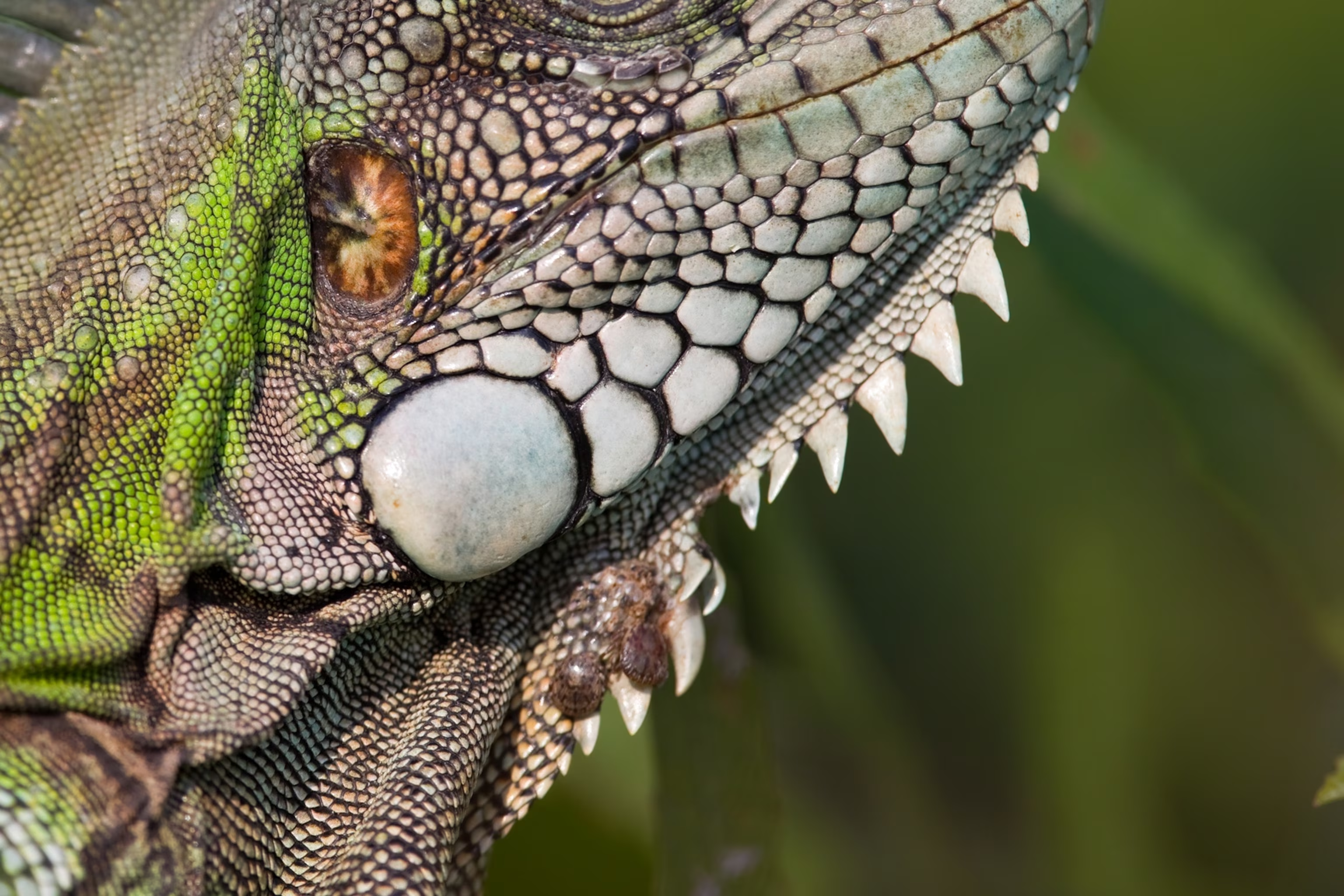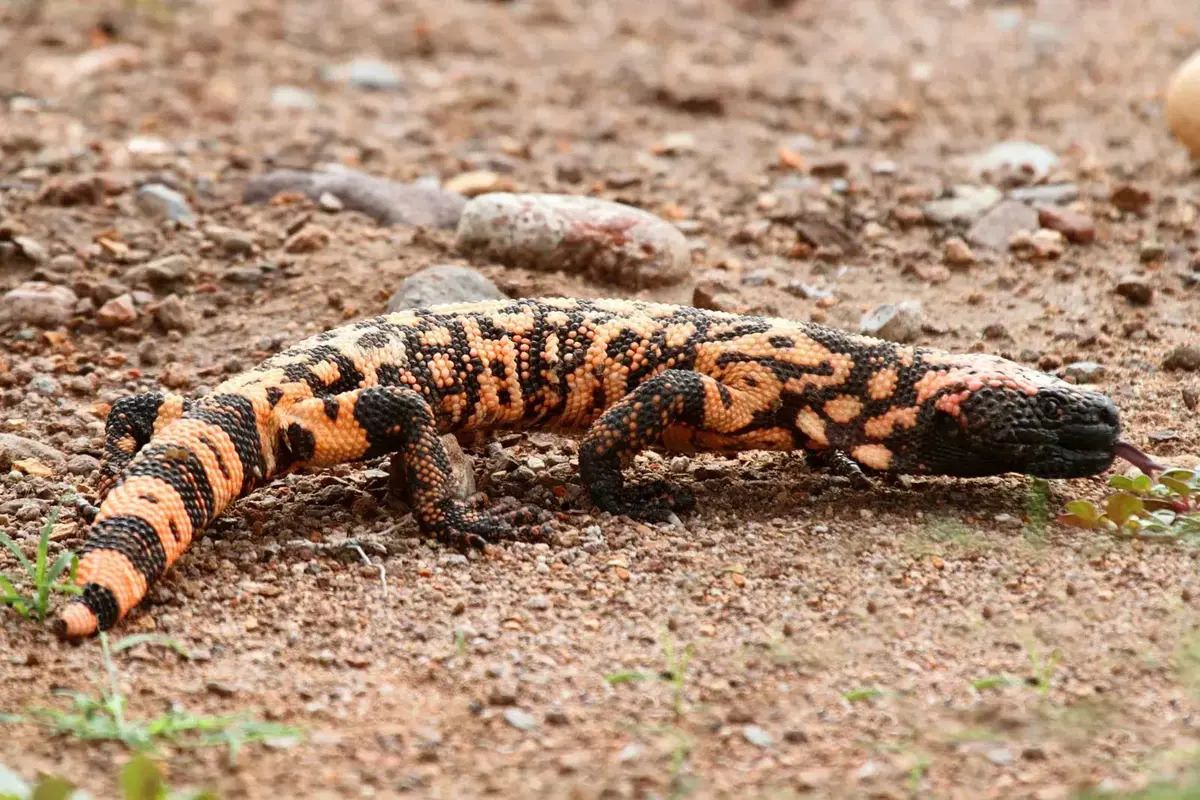
The iguana, with its distinctive appearance and intriguing behaviors, is a fascinating creature that has captivated the interest of animal enthusiasts for years. These ancient reptiles, belonging to the lizard family, are known for their impressive defenses and unique adaptations. From their impressive sizes to their ability to change color, iguanas are truly remarkable animals that deserve our attention.
In this article, we will delve into 17 intriguing facts about iguanas, shedding light on their habitat, diet, reproduction, and more. Whether you are a reptile enthusiast or simply curious about these amazing creatures, get ready to discover some fascinating aspects of iguana life. So, let’s not waste any more time and embark on this journey to learn more about these captivating reptiles.
Key Takeaways:
- Iguanas are fascinating reptiles with unique features and behaviors, from their ability to change color to their skillful climbing. They make wonderful pets with proper care and commitment.
- Understanding the 17 facts about iguanas helps us appreciate their beauty and wonder. If you ever consider having an iguana as a pet, remember to provide them with a proper habitat, balanced diet, and regular veterinary care.
Iguanas are reptiles.
Iguanas belong to the family of reptiles, specifically the lizard family. They are renowned for their unique appearance and fascinating behaviors.
There are over 35 species of iguanas.
The world of iguanas is diverse, with different species found across various regions. Green iguanas, marine iguanas, and desert iguanas are some of the most well-known species.
Iguanas have a distinctive body structure.
They have long bodies, strong limbs, and a dewlap, a loose fold of skin located under their chin. This dewlap is used for communication, particularly during territorial displays.
Green iguanas can live up to 20 years.
Green iguanas, one of the most commonly encountered species, have an average lifespan of 10-15 years in the wild, but can live up to 20 years or more when kept in captivity with proper care.
Iguanas are excellent climbers.
With sharp claws and a strong grip, iguanas are adept climbers. They spend much of their time in trees, basking in the sunlight and foraging on leaves and fruits.
Iguanas are herbivores.
Iguanas have a primarily vegetarian diet, consisting of leaves, flowers, fruits, and occasionally, smaller amounts of insects. Leafy greens, such as kale and collard greens, are important components of their diet when in captivity.
Iguanas are cold-blooded.
Being cold-blooded, iguanas rely on external heat sources to regulate their body temperature. Basking under the sun or utilizing heat lamps is essential for their metabolic processes.
Iguanas can change their color.
Some species of iguanas, such as the green iguana, have the ability to change their color depending on their mood, temperature, and surroundings. This helps them blend in with their environment and communicate with other iguanas.
Male iguanas have larger spines on their back.
To establish dominance and attract potential mates, male iguanas develop larger spines along their back compared to females. These spines make them appear more intimidating.
Iguanas can hold their breath underwater for long periods.
Marine iguanas, a unique species found in the Galapagos Islands, have adapted to their aquatic environment and can hold their breath for up to 30 minutes while feeding on underwater algae.
Iguanas have a third eye called “parietal eye”.
Located on the top of their heads, the parietal eye helps iguanas detect changes in light and shadow, acting as a built-in predator detection system.
Iguanas shed their skin regularly.
As a natural process of growth, iguanas shed their skin periodically. This allows them to remove old, damaged skin and reveal a fresh layer underneath.
Iguanas communicate through various methods.
Iguanas use head bobs, push-ups, tail whipping, and color changes to communicate with each other. These behaviors help establish dominance, attract mates, and convey warnings to potential threats.
Iguanas can drop their tail as a defense mechanism.
When threatened, iguanas have the ability to detach or “drop” their tail as a diversionary tactic. The detached tail continues to wiggle, distracting the predator while the iguana makes its escape.
Iguanas have a unique reproductive process.
Female iguanas typically lay eggs in a nest dug in the ground, and both male and female iguanas exhibit courtship behaviors before mating. Eggs are incubated for several weeks, and the hatchlings are independent at birth.
Iguanas have been associated with ancient civilizations.
Throughout history, iguanas have held cultural significance in various ancient civilizations, including the Mayans and Aztecs. They were considered symbols of wisdom, fertility, and spirituality.
Iguanas can make wonderful pets.
While keeping an iguana as a pet requires commitment and proper care, they can be fascinating companions. With their unique personalities and captivating behaviors, iguanas can provide hours of entertainment and companionship.
Explore the enchanting world of the iguanas and dive into their intriguing lifestyles. From their remarkable ability to change color to their skillful climbing techniques, iguanas are truly remarkable creatures that have fascinated humans for centuries.
Remember, if you ever decide to keep an iguana as a pet, it is crucial to provide them with a proper habitat, a balanced diet, and regular veterinary care. By understanding their unique needs, you can build a strong and rewarding bond with these incredible reptiles.
So, now that you know the 17 fascinating facts about iguanas, go ahead and share this knowledge with your friends and family. Take a moment to appreciate the beauty and wonder of these incredible creatures!
Conclusion
In conclusion, iguanas are fascinating reptiles with a rich history and unique characteristics. From their impressive size to their ability to adapt to various environments, iguanas have captivated the attention of animal enthusiasts around the world.
With their herbivorous diet and distinctive appearance, these creatures have become popular pets, although their care requirements can be challenging. Despite their calm demeanor, it’s important to remember that iguanas are still wild animals and have specific needs that must be met to ensure their well-being.
Whether you encounter an iguana in the wild or decide to bring one into your home, understanding their behavior, habitat, and dietary needs is crucial. By respecting these incredible creatures and providing them with the care they require, we can help conserve and appreciate these remarkable reptiles for future generations.
FAQs
Q: What do iguanas eat?
A: Iguanas are primarily herbivores and consume a diet consisting mainly of leafy greens, fruits, and vegetables.
Q: How big do iguanas grow?
A: Iguanas can grow to impressive sizes, with some species reaching lengths of six feet or more.
Q: Do iguanas make good pets?
A: While iguanas can make interesting pets, they require expert care and can be challenging to care for properly. They have specific environmental and dietary needs that must be met to ensure their well-being.
Q: Are iguanas venomous?
A: No, iguanas are not venomous. They rely on their sharp teeth and powerful jaws to defend themselves when necessary.
Q: How long do iguanas live?
A: With proper care, iguanas can live for 15 to 20 years or even longer in captivity.
Was this page helpful?
Our commitment to delivering trustworthy and engaging content is at the heart of what we do. Each fact on our site is contributed by real users like you, bringing a wealth of diverse insights and information. To ensure the highest standards of accuracy and reliability, our dedicated editors meticulously review each submission. This process guarantees that the facts we share are not only fascinating but also credible. Trust in our commitment to quality and authenticity as you explore and learn with us.


